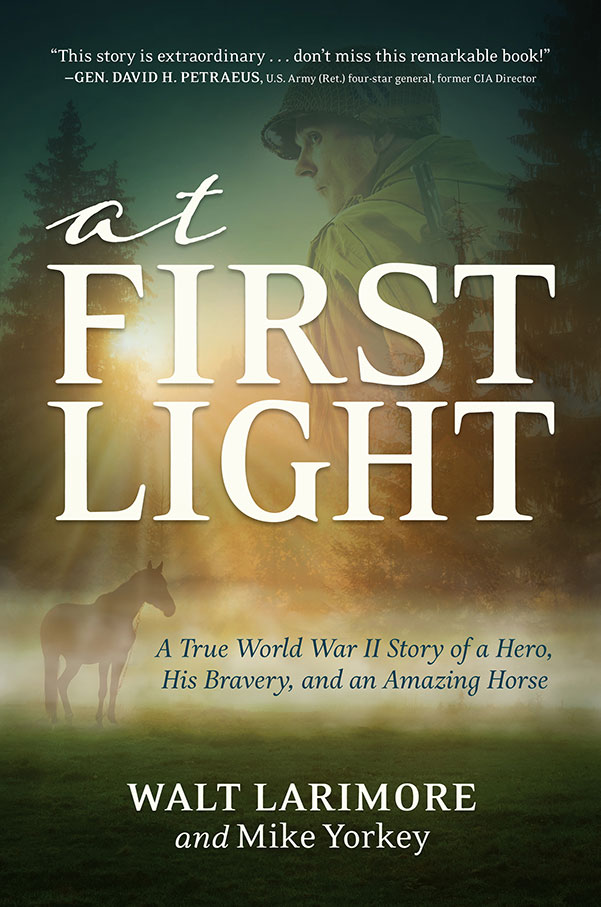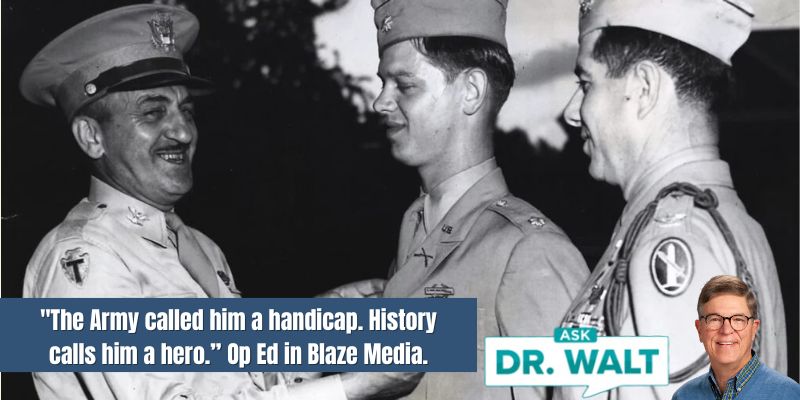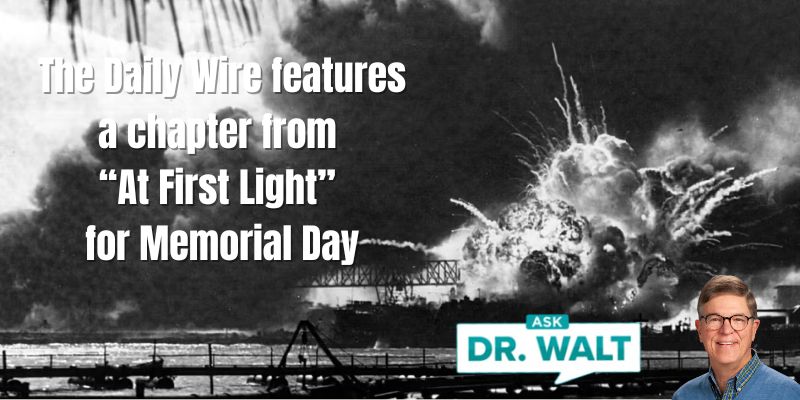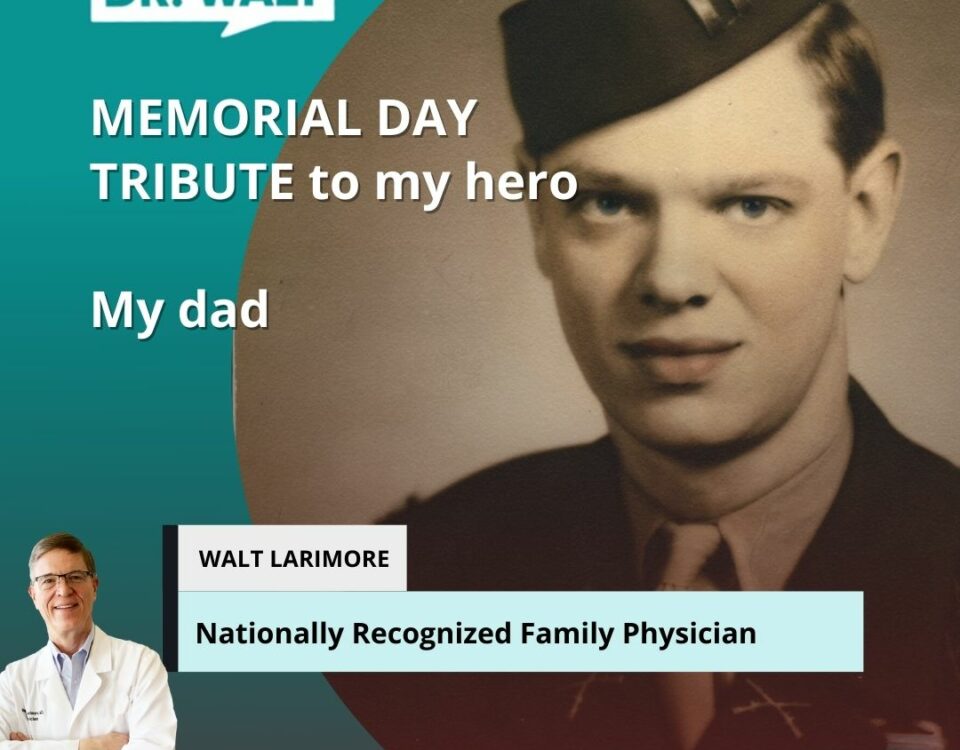
September 16, 1944 — US GIs now face an obstacle that no army in the history of modern warfare had ever overcome—an enemy defending the Vosges Mountains
September 16, 2024
September 18, 1944 — Phil, his men, and Love Company receive their first Presidential Distinguished Unit Citation
September 18, 2024On September 17, 1944, Dad’s 3rd Battalion, commanded by Lieutenant Colonel Richard H. Neddersen, was assigned the objective of liberating the small village of Raddon-et-Chapendu. It was not supposed to be a difficult assignment, but as the GIs fighting in the Vosges Mountains were about to learn, every assignment would be either difficult or deadly or both.[1]

Phil and some of the men from his A&P (Ammunition and Pioneer) Platoon were attached to Company L or “Love Company” under Captain Robert B. Pridgen—received orders to help out with clearing the thickly wooded ridge overlooking the village. Narrow passages and soft ground ruled out any use of armor. In the midmorning, the men reached the ridge and began combat preparations along a low rock wall overlooking the village, all the while expecting extensive enemy action.
Shortly after noon, the Germans below spotted their movements. They sent heavy tank and 20-mm fire over the ridge, followed by raking the American company with another Panzer IV tank, a Flakwagen, a self-pro-pelled (SP) StuG gun,[2] and a 150-mm artillery piece, along with heavy fire from machine guns. This concentration was immediately followed by several assaults of fifty to sixty German soldiers, attacking with automatic weapons and grenades. These small onslaughts were followed by an assault from 200 frenzied, screaming Germans, armed with machine guns, machine pistols, rifles, and grenades.
Phil and 1st Lieutenant Glenn Shuler, a Company L platoon leader, assisted Captain Pridgen and his men in fighting off the enemy for several hours, including a second vicious counterattack. They poured deadly concentrations of machine gun, rifle, and sidearm fire at ranges of ten to fifteen yards, wounding and killing many enemy soldiers while taking on increasing barrages of machine gun and machine pistol fire.
And still, Phil and the courageous men stood their ground.
Unbelievably, a third counterattack followed, lasting a half hour. This time German infantrymen, backed up by tanks, Flak guns, an anti-tank gun, and a 150-mm gun, threw everything they had into the attack. Fortunately for Phil and his men, American artillery finally moved up into position and destroyed much of the German armor while causing the remaining tanks to withdraw. Without the tanks, enemy infantrymen fled the area in personnel carriers, the latter taking on heavy fire from the Americans, who inflicted many casualties.
Despite the setback, the Germans regrouped again, this time for a fourth attack on Company L led by a German Panzer IV tank followed by an enemy force of forty soldiers laying down blistering suppressing fire. Once again, the tank was destroyed with well-placed artillery, and the enemy was dispersed by machine gun and rifle fire.
After the bitter action seemingly ended, Captain Pridgen called Lieutenant Colonel Neddersen via SCR-300 radio to inform him of the situation. American casualties were mounting, and ammunition was running low. Then Pridgen learned that the members of Phil’s A&P Platoon behind the frontline wouldn’t be able to get more ammunition up to him since they were out of ammo too.
Nonetheless, Neddersen’s orders were “to push forward at all costs.”
Pridgen responded that he and his men, which included Phil and his platoon, didn’t have enough ammo to push forward but would hold out despite the odds and whatever the cost. As it was growing dark, a fifth German attack approached but was again repelled by machine gun fire after the Germans got within twenty yards of Company L’s position.
The Germans did not withdraw but remained undercover and continued spraying the Company L men with machine-pistol and small arms fire from close range along the entire company front. At 1730 hours, they began an unprecedented sixth assault.
Several Germans made it to the Company’s line of resistance, resulting in vicious and bloody hand-to-hand fighting since most American soldiers were out of ammunition. In face-to-face fights, the Yanks killed Germans with their rifle butts, bayonets, knives, and hands. The remaining Germans finally retreated.
As their two remaining medics tended to wounds, Pridgen and Phil took a quick inventory and determined that all of the company’s machine gun and rifle ammunition, as well as all grenades, were expended. All that was left was a handful of rounds of pistol and carbine ammunition. Less than half of their men had survived the flood of attacks, and the remaining men, many of whom were wounded, hunkered down behind rocks, tree trunks, or any cover they could find.
Phil wondered what it would have been like to marry Marilyn when he got home. He was worried he was going to die as a teenager–just four months shy of his 20th birthday. He decided if it was his time, he was going to take as many enemy with him as possible.[3]
(TO BE CONTINUED TOMORROW)
~~~~~
[1] Larimore, At First Light, 147.
[2] Sturmgeschütz (abbreviated into StuG), meaning “assault gun,” were a series of self-propelled (SP) armored vehicles used by the German Wehrmacht.
[3] Larimore, At First Light, 147-149.
In case you haven’t read or listened to Dad’s book, you can learn more or order it here.
© Copyright WLL, INC. 2024.




